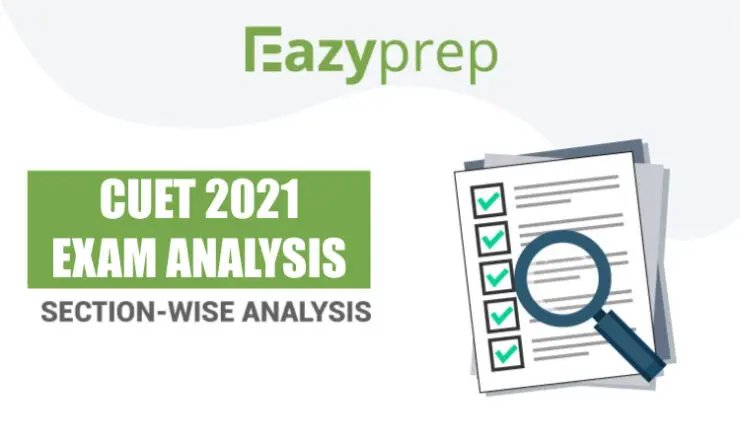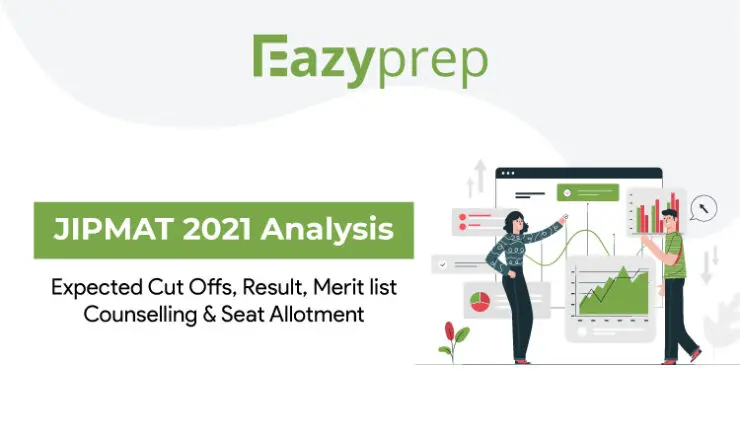![]()
SLAT 2019 was conducted as a part of the admission process to the Symbiosis college law courses. There are two law courses for undergraduates available through the admission process of SLAT (Symbiosis Law Admission Test):
- BA LLB
- BBA LLB
Preparation strategies are important for fruitful preparation but exam analysis is like a reality check on what is actually expected in the exam. We have tried to explain the changes in the entrance pattern over time and also provided a detailed sectional analysis of the SLAT 2019 paper.

The changes in the exam pattern over the years 2018,2019 and 2020 are displayed in the table given below.
| 2018 | 2019 | 2020 | |
| Duration | 2.5 hours | 2.5 hours | 2 hours 90 minutes for MCQ30 minutes for Writing Ability Test |
| Mode | Online CBT | Online CBT | Online CBT |
| Number of questions | 150 | 150 | 90 MCQ and 1 essay type subjective question |
| Sections | 5 | 5 | 5 |
| Marking scheme | 1 mark for each correct answerNo negative marking | 1 mark for each correct answerNo negative marking | 1 mark for each correct answerNo negative marking |
| Overall difficulty level | Moderate to difficult | Easy to moderate | NA |
| Timings and date | May 5th 2018 | May 4th 2019 | Scheduled on 19th July 2020 |
Changes in exam pattern for 2020
The new changes that are there in 2020 SLAT entrance that are different from past year papers are stated below.
- The SLAT will be conducted sometime around July 20th because of the growing concerns of Covid-19 pandemic situation.
- The SLAT 2020 will have 90 MCQ questions, 18 in each of the 5 sections.
- There will be a subjective type essay question along with the MCQ test for 30 minutes.
- So now the SLAT and WAT ( writing ability test) would be conducted together and the merit in these two will decide whether you will be eligible for Personal Interview.
- The WAT would include questions from contemporary issues and legal cases or amendments.
SLAT 2019 Exam analysis
The exam analysis of the SLAT 2019 paper is discussed below. Even though the number of questions have been decreased in 2020, the pattern and type of questions would be followed strictly on the basis of previous year papers.
Exam analysis of 2019
- The SLAT 2019 was held on May 4th all over India except for the states of West Bengal and Orissa due to the effect of cyclone Fani.
- The paper was of an easy to moderate level, easier than the 2018 SLAT. It was also easier than CLAT 2019.
- The paper did not have any surprise questions, however in the Analytical section, there were some numerical questions that came as a surprise to many students.
- Almost all of the sections were easy to moderate except for the General knowledge section that had certain tough questions.
- Time did not prove to be a constraint as candidates could finish the test much before time.
- There was no negative marking and each correct answer was for 1 mark.
1. Logical reasoning Sectional Analysis
This section of SLAT 2019 consisted of a variety of question types. But almost all of the questions were easy and could be completed well before time. Mostly questions were vocabulary based, verbal reasoning and verbal analogies.
Approximate good score
There were 30 questions of 30 marks out of which a score of 23 could be considered good.
Important question types
| Types of questions | Number of questions |
| Vocabulary based | 6 |
| Verbal reasoning | 7 |
| Number series | 4 |
| Word coding | 2 |
| Directions | 1 |
| Family tree | 1 |
| Venn diagram | 2 |

2. Legal reasoning sectional analysis
This section of SLAT 2019 has questions that required a good memory power as many questions were on static legal general knowledge. The broad questions were basically from static legal GK, legal reasoning and there was one assertion-reasoning type question that was a bit tricky. Apart from this all other questions were of easy to moderate level.
Approximate good score
There were 30 questions out of which 21 or more marks could be easily achievable.
Important questions type
- Legal static GK
| Constitutional law | 16 |
| Torts | 1 |
| Criminal law | 2 |
| Contracts | 2 |
- Legal reasoning
| Constitutional law | 2 |
| Torts | 2 |
| Criminal law | 2 |
| Contracts | 2 |
- Assertion-reasoning
There was one question of this type and it was from Tort.
3. Analytical reasoning sectional analysis
This section of SLAT 2019 had questions pertaining to mathematical type and also normal analytical form. There were 16 maths based questions that was a bit surprising for the students but nonetheless they could be solved. The entire section could be solved well within the time frame. It was of an easy to moderate difficulty level.
Approximate good score
A score of 22 and over has been considered good in this section as some of the questions were a bit hard.
Important question types
| Types of questions | Number of questions |
| Ratio proportion and fraction | 6 |
| Time | 1 |
| Profit loss | 3 |
| Age based | 2 |
| Work | 1 |
| Partnership | 1 |
| Averages | 3 |
| Verbal analogies | 5 |
| Family tree | 2 |
| Alphabet series | 3 |
| Strong weak arguments | 1 |
| Word coding | 3 |
4. Reading comprehension sectional analysis
In this section of SLAT 2019, there were a total of 6 passages of different word length. The word lengths were between 200-350 words each. Each of the passages were not very difficult to comprehend or lengthy but 2 passages were a bit difficult. A good knowledge of current affairs would have been perfect for solving the questions as these passages were based on current affairs. This section was of easy to moderate level.
Approximate good score
Each of the questions of this section were solvable. Total marks of 22-24 would be easily achievable in this section.
Important question types
The passages were based on
- Niti Aayog
- GST
- Racism
- Mining
- Environment protection
- Surveillance

5. General knowledge sectional analysis
Out of all the sections, this section of SLAT 2019 was a bit of mind boggling as it included many questions that were a bit uncommon. 25 of the questions were from current affairs out of which 4 questions were on not so famous constitutional amendments. Other questions were from static GK as well as current affairs like awards, government schemes, world forums, etc. This section was of a moderate to difficult level.
Approximate good score
Since this section was of moderate level,a good score would be between 19-21.
Important question types
| Types of questions | Number of questions |
| Names of famous person | 4 |
| Economics | 3 |
| World forum | 3 |
| Government schemes | 2 |
| Awards | 2 |
| New establishment | 2 |
| World news | 4 |
| Military exercise | 1 |
| Government news | 3 |

So this is the entire exam analysis for SLAT 2019. Hope this serves well for your preparations for the upcoming SLAT 2020. You can also check out the preparation strategy for SLAT by clicking here.

